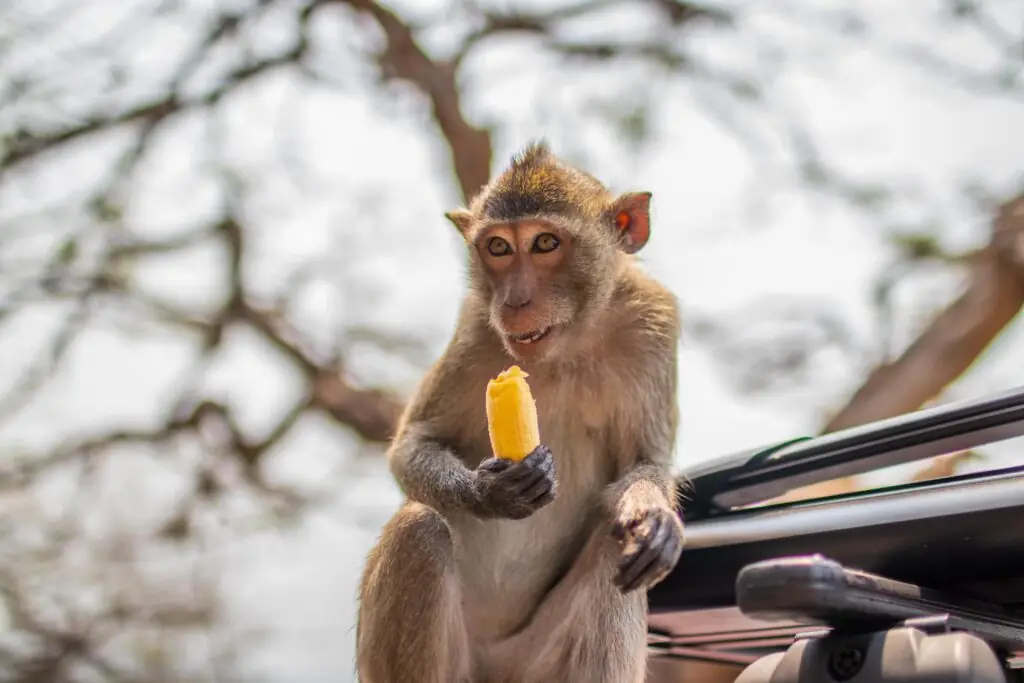The question of what animals think of humans has fascinated scientists and animal lovers alike for centuries. With advancements in research on animal consciousness and intelligence, we are beginning to uncover the complex ways in which animals perceive and interact with humans. This article explores the cognitive abilities of animals, their perceptions of humans, and how our actions impact their views.

✅ AI Essay Writer ✅ AI Detector ✅ Plagchecker ✅ Paraphraser
✅ Summarizer ✅ Citation Generator
Animal Cognition and Perception
Animal cognition encompasses a wide range of mental abilities, including learning, memory, problem-solving, and emotional responses. The level of cognition varies significantly across species, with some animals displaying remarkable intelligence and emotional depth. For example, elephants are known for their strong social bonds and ability to mourn their dead, indicating a level of emotional complexity similar to humans.
Animals perceive their environment through various sensory modalities, which can be vastly different from human perception. For instance, dogs have a highly developed sense of smell, allowing them to gather information about their surroundings and humans in ways that we cannot comprehend. Birds, on the other hand, have exceptional visual acuity and can see ultraviolet light, providing them with a unique perspective of the world.
Domestic Animals’ Views on Humans
Domestic animals, such as dogs and cats, have evolved alongside humans for thousands of years, leading to a unique bond between species. Dogs, in particular, are highly attuned to human emotions and behaviors. They can read our body language, respond to our emotional states, and even follow our gaze to understand our intentions. This deep connection is a result of domestication, which has shaped their cognitive abilities to better communicate and coexist with humans.

Cats, while more independent than dogs, also show a strong understanding of their human companions. The domestication of cats has led to a mutualistic relationship, where both species benefit from the companionship. Some interesting facts about cats’ interactions with humans include:
- Cats can distinguish their owner’s voice from others, often responding more actively when called by name.
- Cats are sensitive to human emotions and can adjust their behavior accordingly. For example, they may seek to comfort their owners when they sense sadness or distress.
- Cats often show affection by purring, head-butting, or curling up in their owner’s lap, indicating a strong social bond.
- Some cats can interpret human gestures, such as pointing, to find hidden treats or toys.
These behaviors demonstrate that cats, despite their independent streak, are attuned to their human companions and capable of forming close, meaningful relationships.
Wild Animals’ Interactions with Humans
Wild animals’ reactions to humans can vary greatly depending on their experiences and the context of the interaction. Some species, like urban-dwelling birds and mammals, have adapted to human presence and can coexist peacefully in cities. Others, such as large predators or animals in protected areas, may view humans as a threat and react with fear or aggression.
Observations of wild animals, particularly primates, have revealed their ability to differentiate between individual humans and adapt their behavior based on previous interactions. This cognitive skill highlights their social understanding and memory. For instance, gorillas in areas filled with tourists have demonstrated varying degrees of tolerance towards humans, depending on their behavior. Some interesting facts and examples include:
- Research has shown that primates, such as chimpanzees and gorillas, can recognize individual human faces and remember them over time.
- In tourism areas, primates may exhibit more relaxed behavior around familiar or non-threatening humans, while showing signs of stress or aggression towards those who invade their personal space.
- Primates can remember past interactions with humans, which influences their future responses. For example, a gorilla that has had negative experiences with humans may become more aggressive or avoidant in future encounters.
These observations highlight the intelligence and adaptability of wild animals, particularly primates, in their interactions with humans.

The Impact of Human Behavior on Animals
Humans have a significant impact on animals, influencing their perceptions and behavior through both positive and negative interactions. Positive experiences, such as compassionate care, ethical treatment, and responsible pet ownership, can foster trust and affection in animals towards humans. These interactions can lead to animals developing a favorable view of humans, seeing us as protectors and companions.
On the other hand, negative experiences, such as abuse, neglect, habitat destruction, and exploitation, can have detrimental effects on animals’ perceptions of humans. These actions can lead to fear, mistrust, and even aggression towards humans, damaging the potential for a harmonious relationship between species.
Conservation efforts play a pivotal role in shaping animals’ perspectives of humans. By protecting natural habitats, enforcing anti-poaching laws, and promoting sustainable practices, we demonstrate a commitment to the well-being of wildlife. These actions help build a positive image of humans in the animal world.
Ethical treatment of animals is crucial, whether they are domestic pets or wild creatures.
By treating animals with respect and kindness, we can ensure that they perceive humans as allies rather than threats. This ethical approach is essential for fostering positive relationships between humans and animals, promoting a more compassionate and sustainable coexistence.
Conclusion
Understanding what animals think of humans is a complex and evolving field of study. Animal cognition and emotions are more sophisticated than previously believed, and our interactions with them can significantly influence their perceptions of us. By fostering positive relationships and promoting ethical treatment and conservation, we can ensure that animals view humans in a favorable light. As we continue to explore the depths of animal consciousness and intelligence, we must remember the responsibility we have in shaping their views and experiences.
FAQ
Follow us on Reddit for more insights and updates.





Comments (0)
Welcome to A*Help comments!
We’re all about debate and discussion at A*Help.
We value the diverse opinions of users, so you may find points of view that you don’t agree with. And that’s cool. However, there are certain things we’re not OK with: attempts to manipulate our data in any way, for example, or the posting of discriminative, offensive, hateful, or disparaging material.